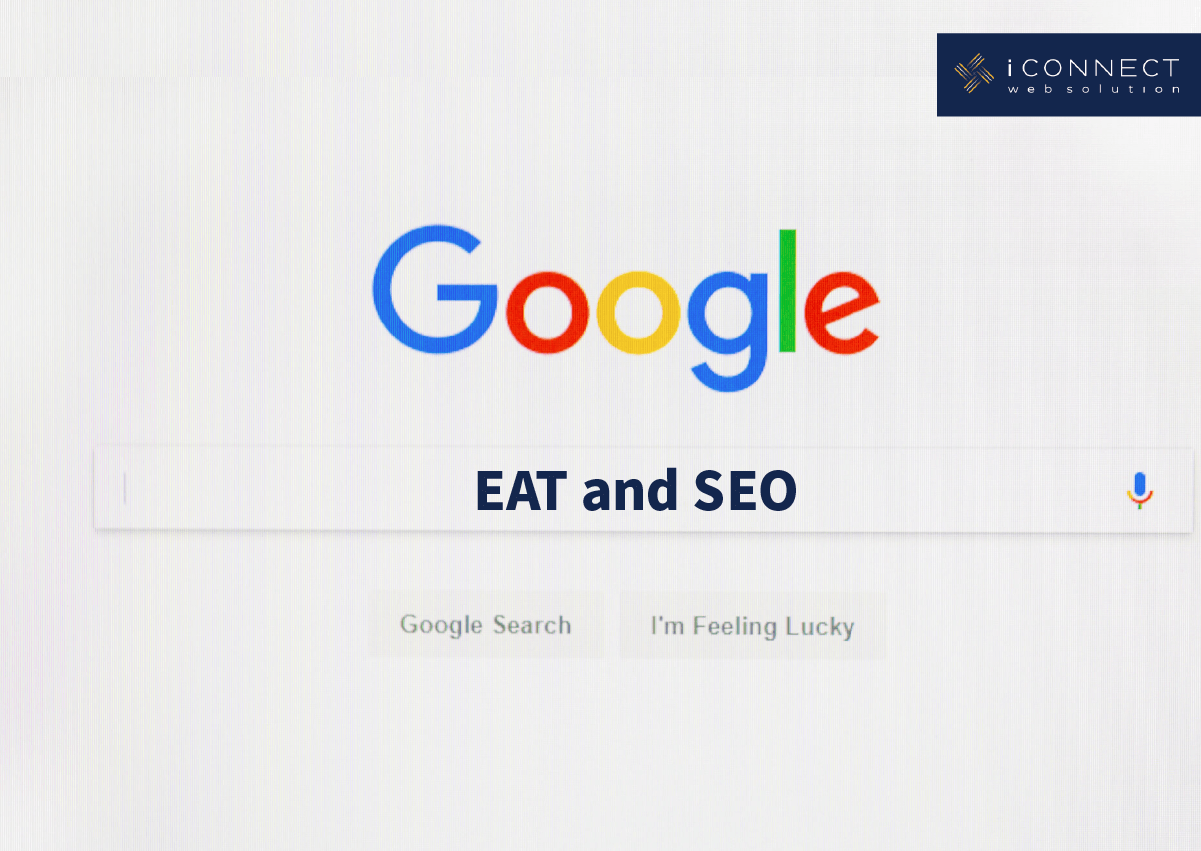

Since the major Google algorithm update in 2018, the medic update, the term EAT has been in the lexicon of many SEOs. EAT represents three main ranking principles that Google uses. Thus, improving the EAT will also increase website traffic and ultimately sales.
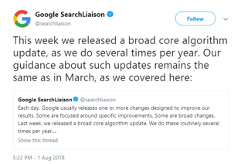
Image Source: https://k8k5i5r9.stackpathcdn.com/wp-content/uploads/Google-EAT-update.png
But what is EAT and how does it affect ranking? In this article, we will talk about what EAT is and how it impacts SEO.
What is EAT?
EAT stands for expertise, authoritativeness, and trustworthiness. The concept of EAT is thoroughly discussed in Quality Raters Guidelines by Google – a document used to assess the quality of Google search results. Google released this document to help webmasters understand what Google looks for in a website.
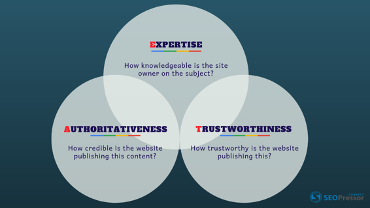

Image Source: https://seopressor.com/wp-content/uploads/2018/12/EAT-Google.png
EAT demonstrates 3 core principles that Google uses to assess every piece of content in its index. Let’s take a closer look at each of these principles:
● Expertise
The website content and SEO articles should be furnished by an expert on the given topic. The author’s expertise is usually determined through his experience, education, and knowledge. For example, a lawyer is most suitable and qualified to write about legal issues.

Image Source: https://exposureninja.com/wp-content/uploads/2018/10/oed-expertise-definition.png
● Authoritativeness
Authoritativeness comes from a good reputation in the industry. It is the measure of how people see your website and the content available on it. When someone sees a website as the go-to source for information on a given topic then that’s authority. The more popular and reputable your website is, the more authority it will have.
● Trustworthiness
Trustworthiness means the ability to be relied upon as truthful and honest. This measures the credibility, legitimacy, accuracy, and transparency of the content on a website. Quality Raters assess trustworthiness by focusing on privacy policy, editorials, security updates etc.
Is EAT Important?
Domains with the best display of expertise, authority, and trust are favored by Google because Google only promotes websites with these qualities. This is why many people consider EAT as an important ranking factor.


It is important that EAT sometimes plays an important role. For example, if you are searching for pictures of puppies, EAT can be ignored because it is a subjective topic. On the contrary, if you are searching for the correct medicine for backache then EAT becomes very important. This is because if the content published is untrustworthy and lacks authority and expertise then it is misleading and could have bad precautions in this scenario.
This is why Google only focuses on surfacing content on crucial topics by trustworthy websites with the highest authority and expertise so that the content is true, accurate and reliable.
We can conclude that the nature of the information being communicated determines the importance of EAT. Google classifies such crucial information as YMYL (your money or your life). Hence, any website built around a topic that fits under YMYL should demonstrate high degree of EAT.
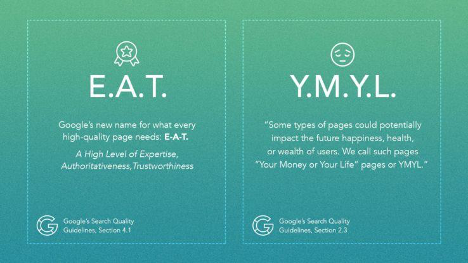
Image Source: https://d1avok0lzls2w.cloudfront.net/uploads/blog/picture1-865855.jpg
Relationship Between EAT and SEO
EAT and SEO are correlated. The more expertise, authority and trustworthy your site is, the better your site will rank high on the search engine. Similarly, different SEO SEM factors can also be used to enhance EAT. For example, using high-quality links will improve the authority and trustworthiness of a website. This is why a link audit is recommended for improving E-A-T.
This shows that SEO and EAT impact each other. But is EAT a direct ranking factor?
According to a statement made by Danny Sullivan, Google’s Quality Raters search results for EAT but it is evaluated by Google algorithms. (Source: Twitter)
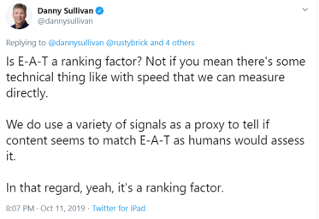
Image Source: https://twitter.com/dannysullivan/status/1182674027166326785
Thus, for something to be a ranking factor, it has to be tangible which can be evaluated by a computer. For example, the number of clicks on a page. Whereas, expertise, authoritativeness, and trust are desirable qualities but they cannot be directly measured by a computer.
On the flip side, expertise, authoritativeness and trust are fundamental human concepts that do impact the quality of a website and how it is perceived by Google (as numeric metrics). Instead of directly measuring the factors, Google uses a variety of signals as a proxy to measure EAT. This makes EAT not a direct ranking factor but a tangible source that affects the ranking algorithms.
Evaluation of EAT
Google does not score EAT but does identify different signals that express the quality of expertise, authoritativeness and trustworthiness of a website. These signals include:
- The quality and amount of backlinks
- The validity of information mentioned in the content
- The number of positive reviews
- Credentials of the content creator
- Editorial guidelines
- Online promotion
- Optimizing about an author pages
- Offside promotion and more
The more you improve these signals the better EAT you have. Also, you can increase traffic by better ranking afterwards.
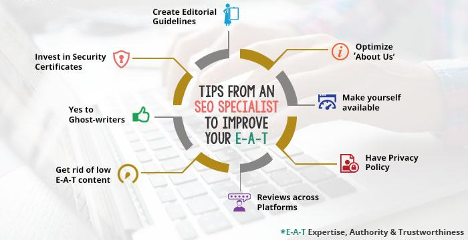
Image Source: https://www.themarcomavenue.com/blog/wp-content/uploads/2019/10/4.jpg
Google has placed a lot of emphasis on EAT in its Search Quality Rating Guidelines. Remember Google algorithm favors websites with high EAT. So, it is time that websites start building their search engine marketing optimization strategies around the concept of EAT.
References
https://www.mariehaynes.com/eat/
https://moz.com/blog/google-e-a-t
https://exposureninja.com/blog/what-is-eat/
https://ahrefs.com/blog/eat-seo/
https://www.spyfu.com/blog/what-is-e-a-t-and-why-is-it-essential-for-seo/
https://www.seo-plus.co.uk/google-e-a-t-algorithm-update/
